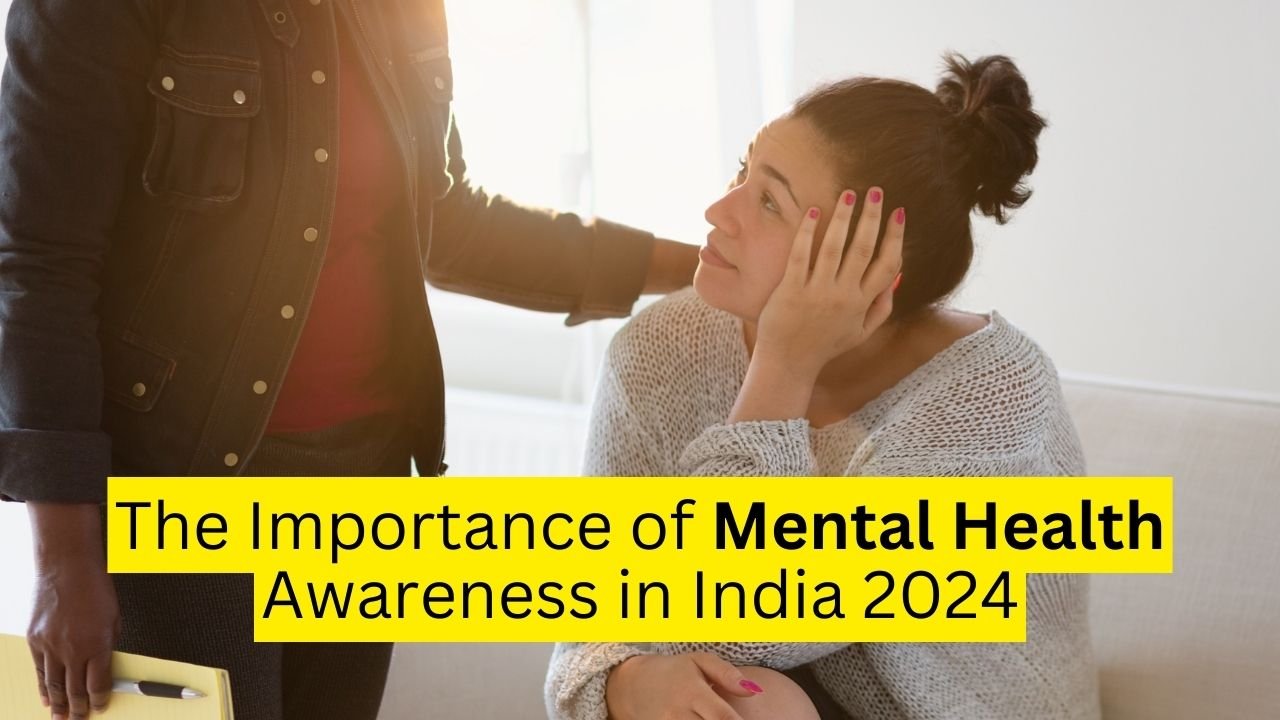The Importance of Mental Health Awareness in India 2024
Posted on : April 3, 2024 By Savan

Table of Contents
Introduction

Mental health is an essential aspect of overall well-being, yet it remains a topic often overlooked or stigmatized in India. As the country grapples with the challenges posed by the COVID-19 pandemic, the need for mental health awareness has become more critical than ever. In this article, we explore the significance of mental health awareness and the steps India can take to prioritize it.
The State of Mental Health in India
India has a vast population, and mental health issues affect millions of people. According to the World Health Organization (WHO), India has one of the highest suicide rates globally. Depression, anxiety, and stress-related disorders are prevalent, but unfortunately, many individuals suffer in silence due to societal stigma.
Breaking the Stigma
The stigma surrounding mental health prevents people from seeking help. Families often hide mental health issues, fearing judgment from society. It is crucial to break this stigma by promoting open conversations about mental health. Schools, workplaces, and communities should actively educate people about mental health and encourage seeking professional help when needed.
Access to Mental Health Services
India faces a shortage of Psychological well-being professionals. The government and private sector must invest in training more psychiatrists, psychologists, and counsellors. Telemedicine and online platforms can also bridge the gap by providing remote mental health services to those in need, especially in rural areas.
Stress and Anxiety During the Pandemic
The COVID-19 pandemic has exacerbated Psychological well-being challenges. Isolation, fear, and uncertainty have taken a toll on people’s mental well-being. India must prioritize mental health support during and after the pandemic. This includes providing resources for coping with stress, anxiety, and grief.
Promoting Self-Care
Individuals can play a significant role in maintaining their Psychological well-being. Practising self-care, such as regular exercise, mindfulness, and adequate sleep, can improve overall well-being. Encouraging healthy lifestyle choices and stress management techniques can go a long way.
Raising Awareness
Awareness campaigns, workshops, and seminars can educate the public about Psychological well-being. Schools and colleges should include mental health education in their curriculum. Media outlets can also contribute by sharing stories of resilience and recovery.
Promoting mental health awareness in schools
Promoting Psychological well-being awareness in schools is crucial for the well-being of students. Here are some effective strategies that educational institutions can adopt:
- Incorporate Mental Health Education into the Curriculum:
- Schools should integrate Psychological well-being education into their curriculum. Lessons on stress management, self-care, and mindfulness can empower students with essential coping skills.
- By discussing mental health openly, students gain knowledge about common Psychological well-being issues, reducing stigma and promoting empathy.
- Provide Professional Development for Teachers:
- Teachers play a vital role in supporting students’ Psychological well-being. Offering professional development to educators equips them with tools to recognize signs of distress and provide appropriate assistance.
- Training sessions can cover topics like active listening, identifying Psychological well-being red flags, and referring students to appropriate resources.
- Promote Positive Self-Esteem:
- Schools should foster an environment that encourages positive self-esteem. Recognizing and celebrating students’ achievements, talents, and unique qualities can boost their confidence and mental well-being.
- Encourage students to appreciate their strengths and embrace their individuality.
- Encourage Balanced Eating and Body Neutrality:
- Educate students about the importance of nutrition and body positivity. Promote a healthy relationship with food and body image.
- Avoid reinforcing harmful stereotypes related to body size or appearance.
- Provide Safe Outlets for Managing Emotions:
- Schools can create safe spaces where students can express their feelings. Art, music, journaling, or peer support groups can serve as outlets for managing emotions.
- Encourage students to seek help when they feel overwhelmed or anxious.
- Set an Open-Door Policy:
- Ensure that students feel comfortable approaching teachers, counsellors, or other staff members with their concerns. An open-door policy fosters trust and encourages communication.
- Let students know that seeking help is a sign of strength, not weakness.
- Involve Caregivers:
- Collaborate with parents and guardians to promote Psychological well-being awareness. Regular communication with families helps address any challenges students may face at home.
- Workshops or informational sessions for parents can provide guidance on supporting their child’s mental well-being.
Remember, creating a supportive learning environment that prioritizes Psychological well-being benefits not only students but also educators and the entire school community. Let’s continue to raise awareness and break down barriers surrounding Psychological well-being in schools.
Conclusion
Psychological well-being awareness is not a luxury; it is a necessity. By prioritizing Psychological well-being, India can create a healthier and more productive society. Let us break the silence, erase the stigma, and work towards a mentally healthier India.
Remember, seeking professional help is a sign of strength, not weakness. If you or someone you know is struggling, reach out to a mental health professional today.
Share this articlePosted on : April 3, 2024 By Savan
Join Our Club

"Stay Informed, Stay Ahead – Join Our Club Today!"



















